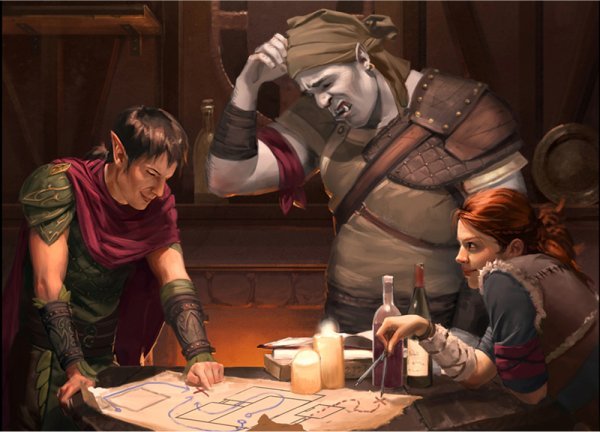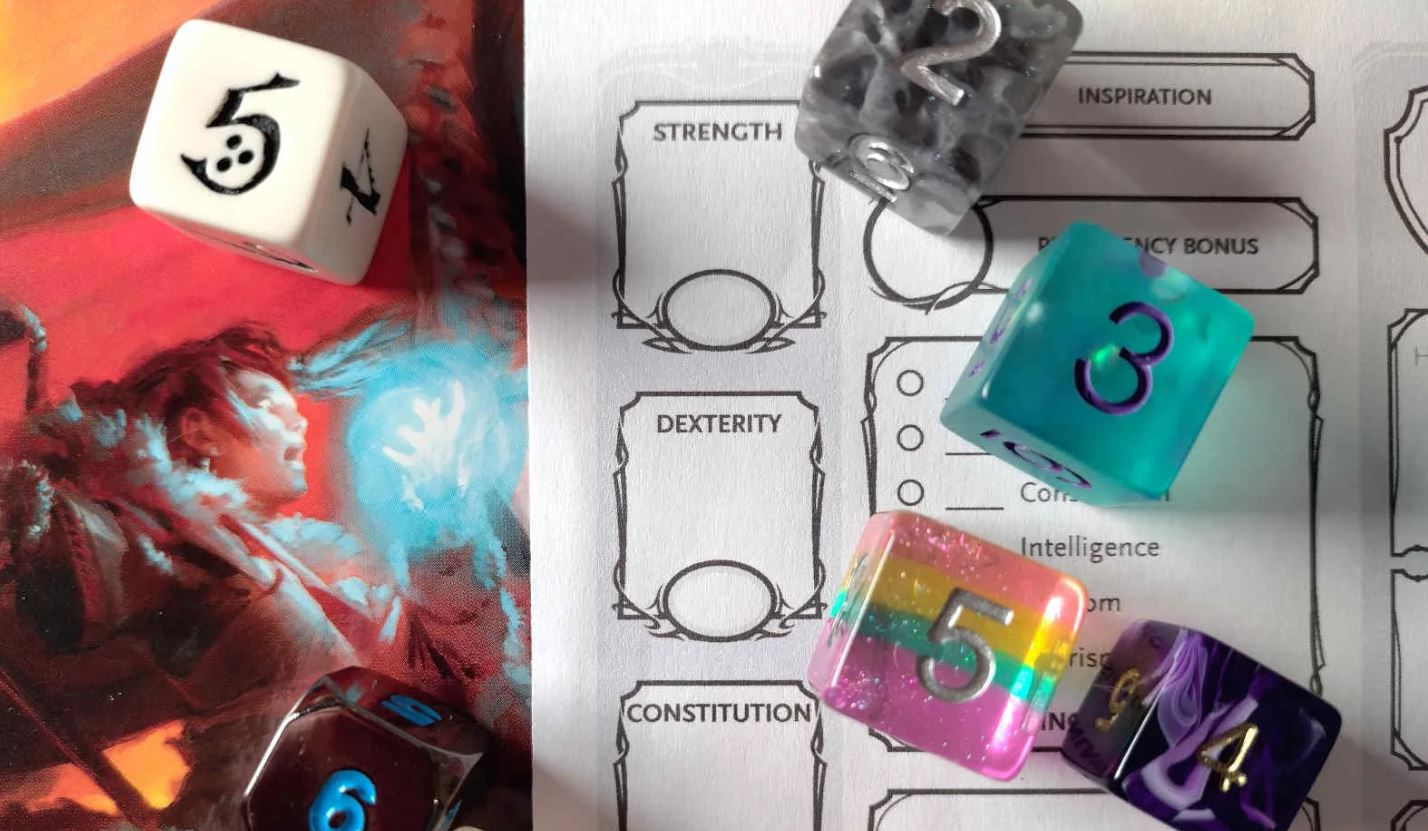Character creation is an important step in joining a D&D game. Your character is the life and blood of the game, so you want to be sure you create them well.
You need to decide what kind of character you want to be before you start playing. You’ll want to think about the different aspects of your character, such as race, ability scores, and what makes your character unique.
If you’re new to D&D, you might not know where to start. Character creation can be extremely overwhelming and leaves many of us exhausted just thinking about it! So what do we do in these situations?
Well, we are here to help! This article will take you through the main steps of D&D character creation so you can develop a great character and have a fun game.
How To Make A Good D&D Character
So how do you make a good D&D character? Well, there are a few things you will want to consider when creating your character. Just keep reading to see what you should consider and how you can make a fantastic character.
Race determines appearance, size, speed, languages, and subrace. You gain proficiency in two skills of your choice.
Examples are dwarf, elf, halfling, human, dragonborn, gnome, half-elf, half-orc, halfling, or any combination thereof which can be used.
Class is your character’s profession. It determines what actions your character is capable of performing. You gain some special class features and proficiency centered around your chosen vocation. Read the first few paragraphs of the class description to get an idea of how each class works.
Examples: Clerics are holy men who serve God. Druids are nature-loving people who worship the spirits of nature. Fighters are brave warriors who fight with weapons. Monks are spiritual people who follow rules and meditate.
Paladins are knights who protect others. Rogues are thieves who steal things. Sorcerers are magicians who cast spells. Warlocks are wizards who use magic. Wizards are wise people who study magic.
Pick A Background
Your character’s history is an important aspect to consider. He/she may be a criminal, a religious leader, a political figure, a business owner, etc. Each background provides different proficiencies, languages, and skills. Read the description carefully for each background.
Example: Entertainers are folk heroes who perform feats of strength or magic. Their skills include performing tricks, singing songs, dancing, and acting. They may be entertainers, performers, storytellers, jugglers, acrobats, musicians, or actors.

What Are Ability Scores?
A character has 6 ability scores. You can choose from any combination of 1-20. Your race determines what bonuses apply to each score. For example:
- Humans get +2 Strength, +1 Dexterity, +1 Constitution, +1 Intelligence, +1 Wisdom, and +1 Charisma.
- Elves get +4 Dexterity, +3 Constitution, +1 Wisdom, +1 Charisma, +1 Intellect, and +1 Strength.
- Dwarves get +2 Dexterity, +2 Constitution, +2 Strength, +2 Intelligence, +1 Wisdom.
- Halflings get +2 Dexterity, 2 Constitution, +2 Intelligence, and +2 Charisma.
- Gnomes get +4 Dexterity, 3 Constitution, +3 Intelligence, +1 Wisdom and +1 Charisma.
- Half-Orcs get +2 Dexterity, 3 Constitution, 2 Strength, +2 Intelligence and +1 Charisma.
What Are Ability Modifiers?
Your ability modifier is added to the die roll. You must roll a minimum of 1 to get an outcome. A maximum of 6 determines how high or low your result is. Higher results are better than lower ones.
The goal of the player is to beat the target number. Ability score modifier is determined by your ability modifier + your proficiency bonus + your age or size modifier.
For example, if you’re a Small character who uses Strength as your main ability score, add your Strength modifier (which is +0) plus your proficiency bonus (+1), then apply your age (-10) or size (-5) modifiers.
What Are Proficiency Modifiers?
Proficiencies are bonuses you get when using skills or weapons you’re proficient with. You start out with a +2 proficiency bonus at the first level. As you gain experience, your proficiency bonus increases.
For example, if you’re a rogue and you’re proficient with short swords, your proficiency bonus increases by 2 every time you gain a level.
What Are Saving Throws?
Saving throws are ability checks that are made by characters whenever another creature targets them. To calculate your saving throw, follow these steps:
- Determine which saving throws your class is proficient in (your class will determine which two saves it is proficient in).
- Add your proficiency bonus to the relevant save DCs.
- Apply any other applicable modifiers. You get a bonus to your Dexterity saving throw equal to 3 + 2 5. Your proficiency bonus does not apply to this saving throw.
What Are Skill Scores?
Skill scores are ability checks that are used when certain situations arise. You can add your skill score to your roll as well as other modifiers such as your proficiency bonus.
For example, if you are proficient in Perception and Stealth, you could add your Dexterity modifier to the roll as well as your proficiency bonus. Your proficiency bonus is added to your ability scores.
You get 2 points for each level of proficiency you have. This is done before any other bonuses are applied. So if you have a dexterity modifier of +1, and a charisma modifier of +3, then your dexterity modifier is +4, and your charisma modifier is +6.

Character Personality
Choose your character’s personality traits: for example their bonds, flaws, and ideals. Pick a name for your character by making one up or finding a fantasy name generator online.
Come up with a compelling backstory for your character, stealing from ideas online is fine! Choose your character’s alignment (their temperament to other characters and the world as a whole).
Experience Points
You start your adventure at 0 experience points. Using your Dungeon Master and D&D character sheet for help, you can gain more experience points as you progress through the game. Remember to keep track of your experience points throughout the game!
Final Thoughts
Roleplaying and character creation in D&D is lots of fun! Players should visualize themselves as their characters, taking time to embody their character’s personality and interacting with other characters and NPCs throughout the game to develop their character arc more fully.
The great thing about playing D&D is that you can be extremely flexible and imaginative when developing your character’s personality and abilities. Creating your character from scratch is all about channeling your inner creativity, and most of all, having fun!






